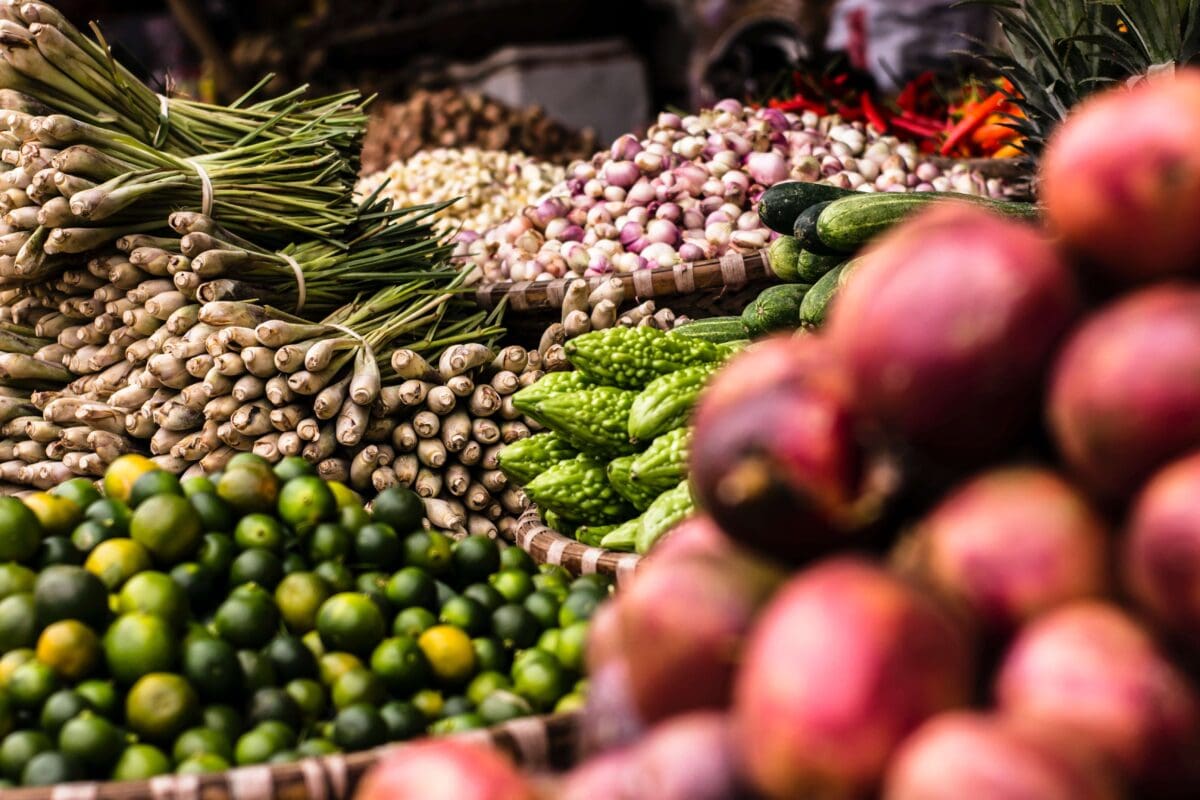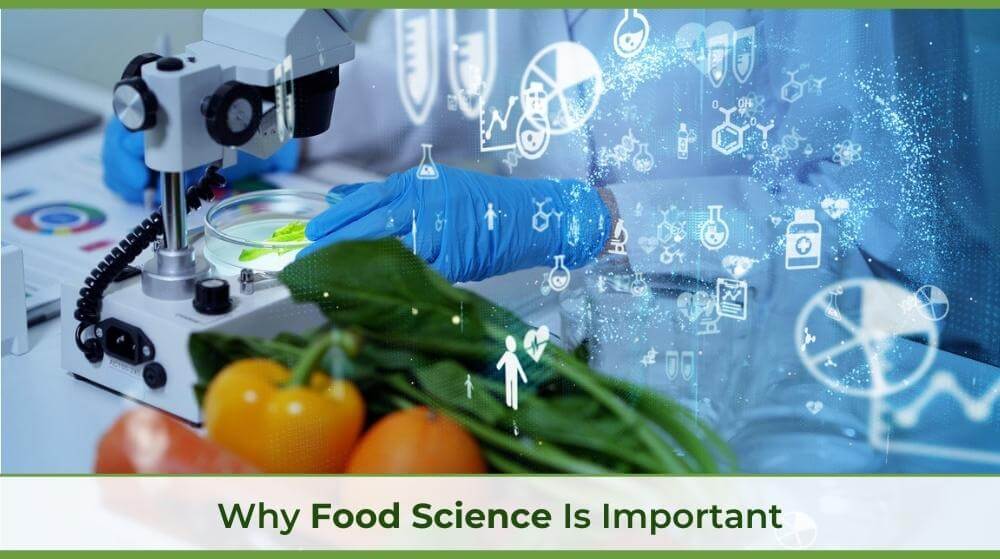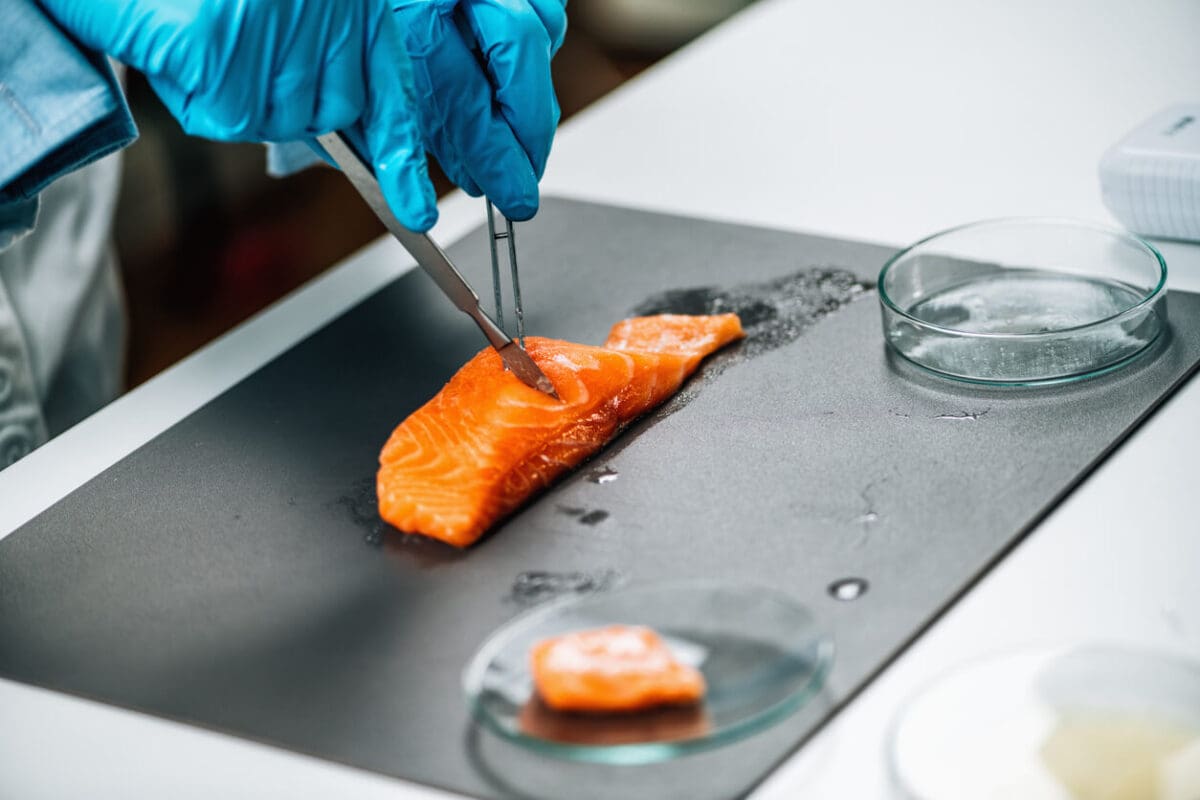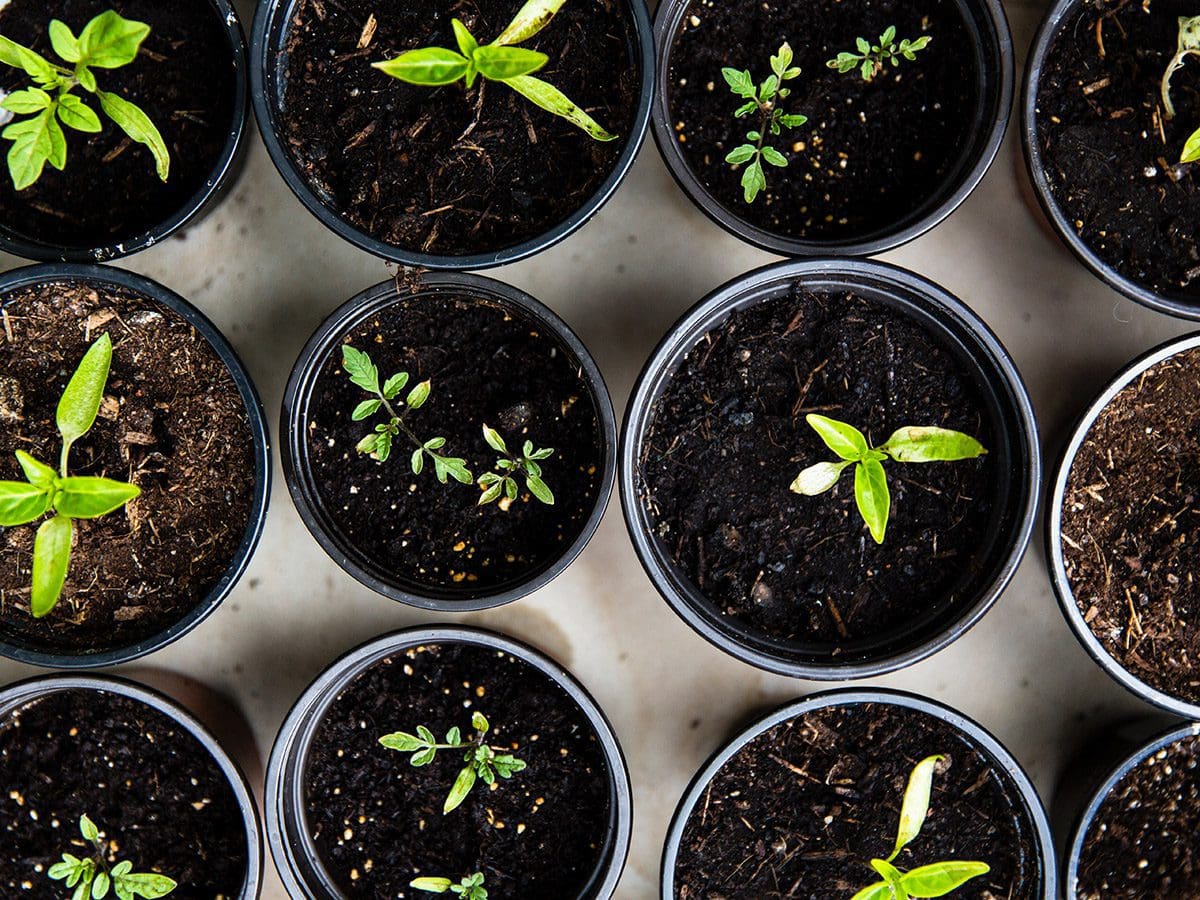
What Is Food Science, And Why Is Food Science Important?
Why is food science important? Food is one of the most essential resources on our planet, but with the effects of climate change and the increasing global population, it may not always be accessible to everyone.
We need food science to ensure a sustainable future for humanity. Using technology and scientific principles from multiple fields such as biology and chemistry, food scientists can make food easier to grow, safer, and healthier. In this post, we explore the question, “What is food science and technology?” and provide examples of food science.

Help build a more sustainable future with a B.S. in Sustainable Business Management: Sustainable Food and Farming.
What Is Food Science?
Food science is a multidisciplinary field that focuses on solving real-world problems around the production of food. Modern consumers want safe, nutritious, and easily available food. Food scientists help farmers, grocers, and other businesses meet those demands. The science of food involves studying:
- Food composition
- Preparation
- Processing
- Preservation
- Effects on human health
Types Of Food Science
There are several different areas of food science. Food scientists usually pick one area to specialize in, but there is some overlap between the subfields.
- Food Chemistry: A large portion of food science is understanding the molecular structure of the food we consume.
- Food Engineering: An important piece in the food production pipeline, food engineers explore processes from what materials go into our packaging to how to preserve freshness in ingredients.
- Food Microbiology: Food microbiologists study microbes, pathogens, and other microorganisms present in food.
- Sensory Analysis: This subfield of food science focuses on evaluating foods based on the five senses – taste, touch, smell, sound, and sight.
Why Is Food Science Important?
Now that you know the definition of food science, let’s look at its benefits. What does food science do? Food scientists work to ensure that there is enough safe, healthy, and accessible food for all people and animals. This includes food for livestock and pets.
The study of food allows us to understand the plants and animals that we eat and how to improve current food systems to make them more efficient and sustainable. Below are the six main reasons why food science is important now and in the future.
Enhancing Food Safety
Food safety and quality will continue to remain a key part of sustainability as the Earth warms. Food safety issues tackled by food scientists include:
- Reducing outbreaks of foodborne illnesses
- Improving food shelf life
- Creating safe packaging
Food tech is continually improving in ways that enhance food safety. For example, scientists have found they can use high-pressure or light energy to sterilize foods. Consider specializing in food microbiology if you are interested in food safety.
Improving Nutritional Quality
Scientists only began to really understand nutrition within the past century. Using the science of food, we can understand the nutrients that we need and how to enhance foods to meet those dietary needs. This is done in many foods already, such as adding iron or folic acid to bread and cereal. Improving the nutritional quality of readily available foods that people already enjoy eating can improve the overall health of a population.
Learn food production techniques like hydroponics through a sustainable horticulture program.

Ready To Learn More About Unity Environmental University?
Extending Shelf Life
Preserving food through fermentation, canning, or cooling has been used by human societies for many centuries. The invention of refrigerators is one of the most influential food science examples for extending the shelf life of foods. While we have made a lot of progress, there is still room to grow in this area of food science. Food waste is a huge problem across the world. In the US, 30-40% of the total food supply is wasted. By using science and technology, we can extend the shelf life of foods that are often wasted.
Innovating Culinary Experiences
A modern supermarket is filled to the brim with a variety of globally-inspired foods ready to delight our culinary senses. The abundance of products available to consumers is thanks to sensory scientists, chemists, and food engineers that transform raw ingredients into the foods we see on the shelves.
A great example of food science is the manufacturing and preparation of coffee. Without food science, coffee would not be available anywhere except for in a small stretch of the globe close to the equator. The fermenting, storing, shipping, roasting, and brewing of coffee involves a large array of food science disciplines.
Excellent food starts with the right ingredients. Explore plant cultivation methods on Unity’s blog.
Addressing Global Food Challenges
Worldwide, there is a growing demand for food. Food accessibility remains a barrier in many parts of the world including parts of the US. Food scientists can influence the food production pipeline to solve problems and create affordable, nutritional food options in underserved areas, such as those in urban “food deserts.” One way to do this is to empower communities to engage in urban farming.
Managing Food Allergies and Sensitivities
One of the many food technology benefits is managing food allergies and sensitivities. Food science helps identify allergens and create safe options for those with dietary restrictions. For example, lactose-free milk allows people who are lactose-intolerant to enjoy cow’s milk. Food science also brought us gluten-free bread and plant-based imitation meat products.

Earn an associate degree in urban agriculture at Unity’s Technical Institute.
Careers in Food Science
There are many careers for those interested in both food and science. You can work as a:
- Food technologist
- Flavor chemist
- Quality control specialist
- Food microbiologist
- Sensory analyst
- Research scientist
Not only is this job important, but it is also a smart career choice. In 2022, the average yearly salary for food scientists was $85,730. The number of jobs in the field is expected to grow 8% in the next decade, faster than the average job growth. If you are more interested in getting your hands dirty in the field than doing research, you may be interested in some of these sustainable agriculture jobs instead.
Start Your Career In Food Science At Unity Environmental University
Food science is not new. Our understanding of nutritional value, food allergies, and expiration dates is all thanks to food science. And, as human populations increase and the Earth warms, food science remains an essential field for our future and a meaningful career choice.
Most food science jobs require at least a bachelor’s degree. With an online Bachelor’s in Sustainable Business Management: Sustainable Food and Farming, you will take courses on food production systems and sustainable farm management. If you want to take courses in plant breeding or social justice in food systems, consider a degree in Sustainable Horticulture. No matter which degree you choose, you will graduate with the tools you need to effect positive change.






